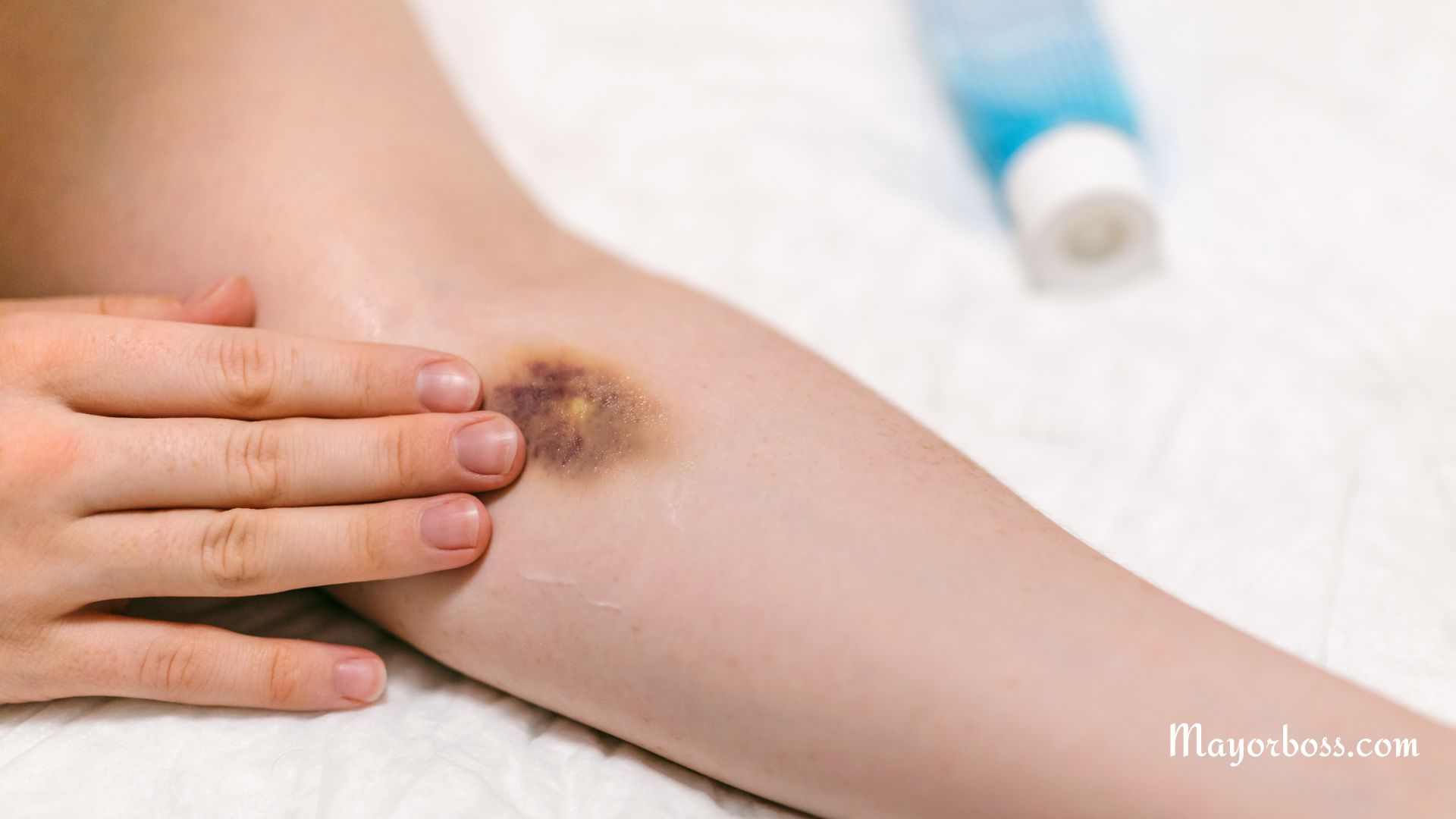What To Do When A Stubborn Bruise Won’t Go Away
Have you ever had a bruise that seemed to linger longer than it should? Usually, bruises are common aftermath of bumps and falls. Generally, they heal within a couple of weeks. However, sometimes you might notice a bruise that just doesn’t seem to fade away. So, what can you do when a bruise just won’t go away?
Recognizing Persistent Bruises
Bruises occur when blood vessels under the skin break, thus causing blood to leak into the surrounding tissue. Initially, this blood accumulation appears as a black, blue, or purple mark. Over time, as the body reabsorbs the blood, the bruise changes color and eventually fades.
When to be Concerned
Typically, bruises heal within 10-14 days. However, if a bruise remains visible for more than a couple of weeks, especially without any sign of fading, it’s advisable to be cautious. This could indicate a more serious underlying issue like blood-clotting problems. Hence, consult a healthcare professional.
Possible Causes
- Age-Related Factors: As you age, your skin becomes thinner and your blood vessels more fragile, making it easier to bruise and harder for bruises to heal.
- Medications: Certain medications, like blood thinners, can make you more susceptible to bruising and can slow down the healing process.
- Nutritional Deficiencies: Lack of certain vitamins, like Vitamin C and Vitamin K, can impair your body’s ability to heal bruises.
- Medical Conditions: Persistent bruises can sometimes signal an underlying medical condition, such as a bleeding disorder, abnormal blood platelets, liver disease, or certain cancers.
Steps to Take
Home Care Techniques
- Apply Cold Packs: Initially, apply cold packs to the bruise for 20 minutes at a time. This can help reduce swelling and slow down the bleeding.
- Elevate the Area: Elevating the bruised area above the heart level, when possible, can decrease blood flow to the area, reducing the size of the bruise.
- Use Warm Compresses: After 48 hours, switch to warm compresses to increase blood flow and aid the healing process.
- Avoid Re-Injury: Protect the bruised area from further injury, as this can prolong healing.
- Eat a Balanced Diet: Ensure your diet is rich in vitamins and minerals, especially Vitamin C and K, to support your body’s healing processes.
When to Seek Medical Attention
- If the bruise is unusually large or painful
- If the bruise appeared without any injury or trauma
- If you notice frequent, unexplained bruising
- If you are taking medications that might affect bruising and healing
Professional Evaluation
A healthcare provider will evaluate the bruise, considering your overall health, medical history, and any medications you’re taking. They may conduct blood tests or imaging studies to rule out more serious conditions.
Prevention Tips
- Protect yourself from injuries that can typically cause bruising.
- Discuss with your doctor if you’re concerned that your medications might be causing excessive bruising.
- Maintain a nutritious diet to support your body’s natural healing processes.

Frequently Asked Questions About Persistent Bruises
- Can certain foods or supplements help heal bruises faster? Foods rich in vitamins C and K, like citrus fruits and leafy greens, can support the healing process. However, always consult with a healthcare provider before starting any supplements.
- Are some people more prone to bruising than others? Yes, factors like age, skin tone, and individual health conditions can make some people more prone to bruising than others. Medications, particularly blood thinners, can also increase the likelihood of bruising.
Further Reading: What It Truly Means When Your Bruise Itches






